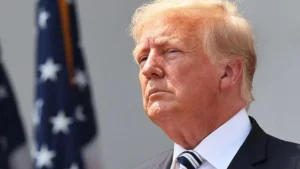A report by the Global Trade Research Initiative (GTRI) highlights India’s escalating dependence on Chinese imports, with the import bill surging to over $101 billion in 2023-24 from around $70 billion in 2018-19. Over the past fifteen years, China’s share of India’s industrial goods imports has risen significantly, reaching 30%, while imports from China have outpaced India’s total imports by 2.3 times.
Findings of the Report
1. Escalating Import Figures: India’s imports from China spiked to over $101 billion in 2023-24 from approximately $70 billion in 2018-19.
2. Surging Dependency: China’s share of India’s industrial goods imports surged from 21% to 30% over the past fifteen years, outpacing India’s total import growth by 2.3 times.
3. Dominance in Key Sectors: China emerges as the top supplier in eight crucial industrial sectors, including machinery, chemicals, pharmaceuticals, and textiles, contradicting the notion that Chinese imports are primarily limited to the electronics sector.
Status of India’s Import Dependency
1. Sectoral Breakdown: China dominates India’s import landscape, supplying nearly 42% of textile and clothing imports, 40% of machinery imports, and 38.4% of electronics, telecom, and electrical products.
2. Critical Industries: China’s influence extends to chemicals and pharmaceuticals, accounting for 29.2% of imports, along with substantial shares in plastic products (25.8%) and automobile sector inbound shipments (23.3%).
3. Varied Reliance: While India displays lower reliance on China in certain sectors like iron, steel, and base metals, the overall dependence remains significant across diverse industries.
Concerns and Implications
1. Cumulative Trade Deficit: Despite stagnant exports to China, India faces a mounting trade deficit, surpassing $387 billion over six years, underscoring the urgent need for strategic trade recalibration.
2. Increased Dependency: China’s dominance in major industrial product categories raises concerns about India’s economic vulnerability and underscores the necessity of diversifying import sources.
3. Strategic Imperatives: The study advocates for a comprehensive reassessment of India’s import strategies to mitigate economic risks, bolster domestic industries, and reduce reliance on single-country imports, particularly from geopolitical rivals like China.




 Trump Slaps 10% Global Tariff on All Imp...
Trump Slaps 10% Global Tariff on All Imp...
 U.S. Department of State Launches $200 M...
U.S. Department of State Launches $200 M...
 India Joins 100+ Nations in Strong Stand...
India Joins 100+ Nations in Strong Stand...








